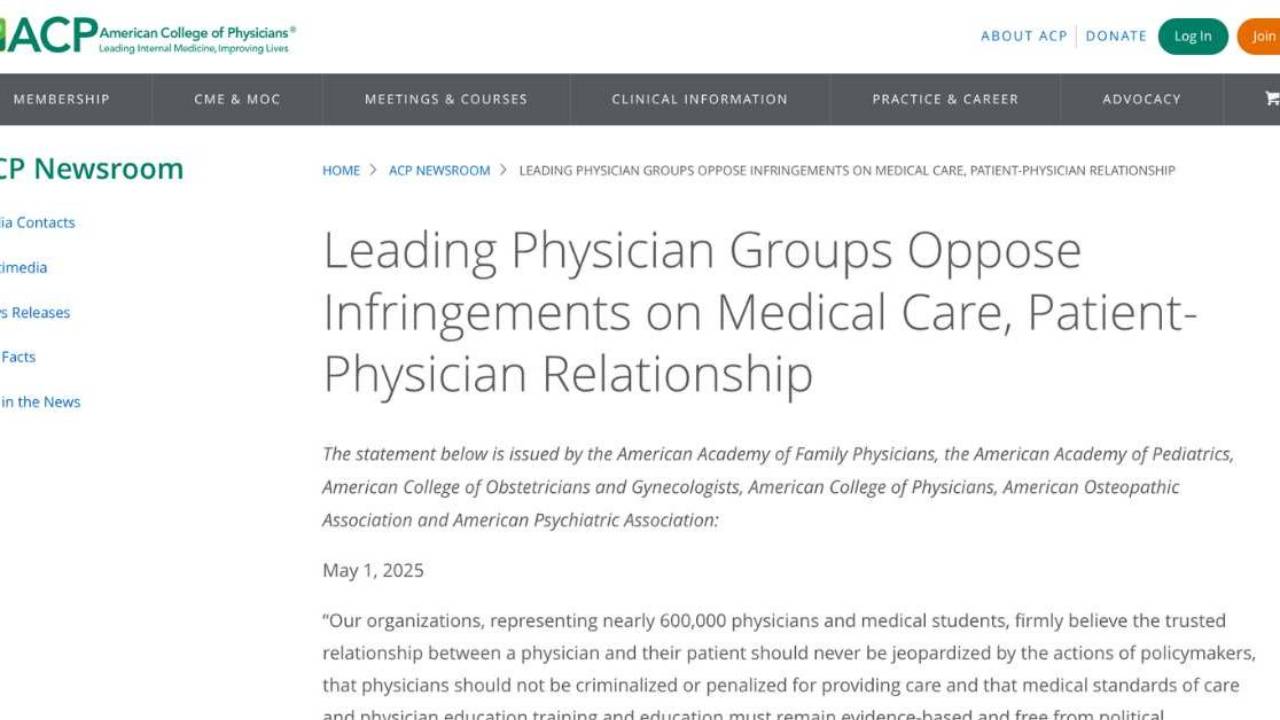What Leading Clinician Groups Say About the Hateful Executive Order “Protecting Children from Chemical and Surgical Mutilation”
Sep 15, 2025
On January 28, 2025, the administration enacted Executive Order (EO) 14187—“Protecting Children from Chemical and Surgical Mutilation”—which aims to narrow access to gender affirming care for young people. It describes puberty blockers, hormones, and surgeries as “mutilation” and directs federal agencies to defund, defame, and dismantle thriving, evidence‑based care systems. But Executive Orders are not laws—and several clinician‑centered groups are pushing back with clarity, care, and unwavering commitment.
Executive Orders Don’t Rewrite Clinical Standards
An EO reflects executive branch policy—but it doesn’t change law or override consensus guidelines created through years of ethical, evidence‑aligned practice. The standards of care developed by WPATH, Endocrine Society, and others remain intact and authoritative.
Responses from Clinician-led Organizations
WPATH
WPATH issued an immediate and firm statement condemning the EO’s framing as harmful and uninformed. They emphasized that gender affirming care is necessary, individualized, supportive of basic autonomy, and should be decided by patients and their care teams—not political appointees.
Endocrine Society & Peer Groups
The Endocrine Society reaffirmed that clinician‑ and patient‑guided decisions rooted in the best available science should drive care—not executive mandates. Their guideline development adheres to trusted, transparent, and evidence‑based methods.
American Academy of Pediatrics (AAP) and Others
American Academy of Family Physicians, the American Academy of Pediatrics, American College of Obstetricians and Gynecologists, American College of Physicians, American Osteopathic Association and American Psychiatric Association representing over 600,000 clinicians released a joint statement reinforcing support for confidential, care‑aligned clinical decision‑making and rejected interference by legislation or executive actions.
Why This Matters for Clinicians
-
Guidance over mandates: Your practice is guided by vetted clinical consensus—not political language.
-
Clarity for patients and families: You can confidently affirm: “This EO is not law and doesn’t change medically sound, individualized care.”
-
Tools for advocacy: These organizations’ statements offer resources—concrete language, citations, and moral support—for documentation and internal communications.
Next Steps in Your Care Context:
-
Embed Official Language: Use clinician group statements to document continuity of evidence‑aligned care, especially where coverage or logic is questioned.
-
Communal Resilience: Share links and quotes from these statements within peer networks, clinic teams, and patient support networks.
-
Calls to Action: Encourage your organizations to publicly align with these groups when facing administrative or payer pushback.
Executive Order 14187 falls far short of dismantling gender affirming care—but it does threaten access through confusion and coercive framing. That’s why clinician groups like WPATH, AAP, Endocrine Society, and others continue to affirm: gender affirming care is ethical, life‑affirming, and grounded in trust, not politics. Your role in upholding that clarity matters—both for individual patients, and for liberatory care systems rooted in body autonomy.
SUBSCRIBE FOR MONTHLY UPDATES
QueerCME distriputes a monthly newsletter which details our content updates. We also offer free live stream didactic sessions on topics in gender affirming healthcare, so we send out reminders around those as well.
We hate SPAM. We will never sell your information, for any reason.

